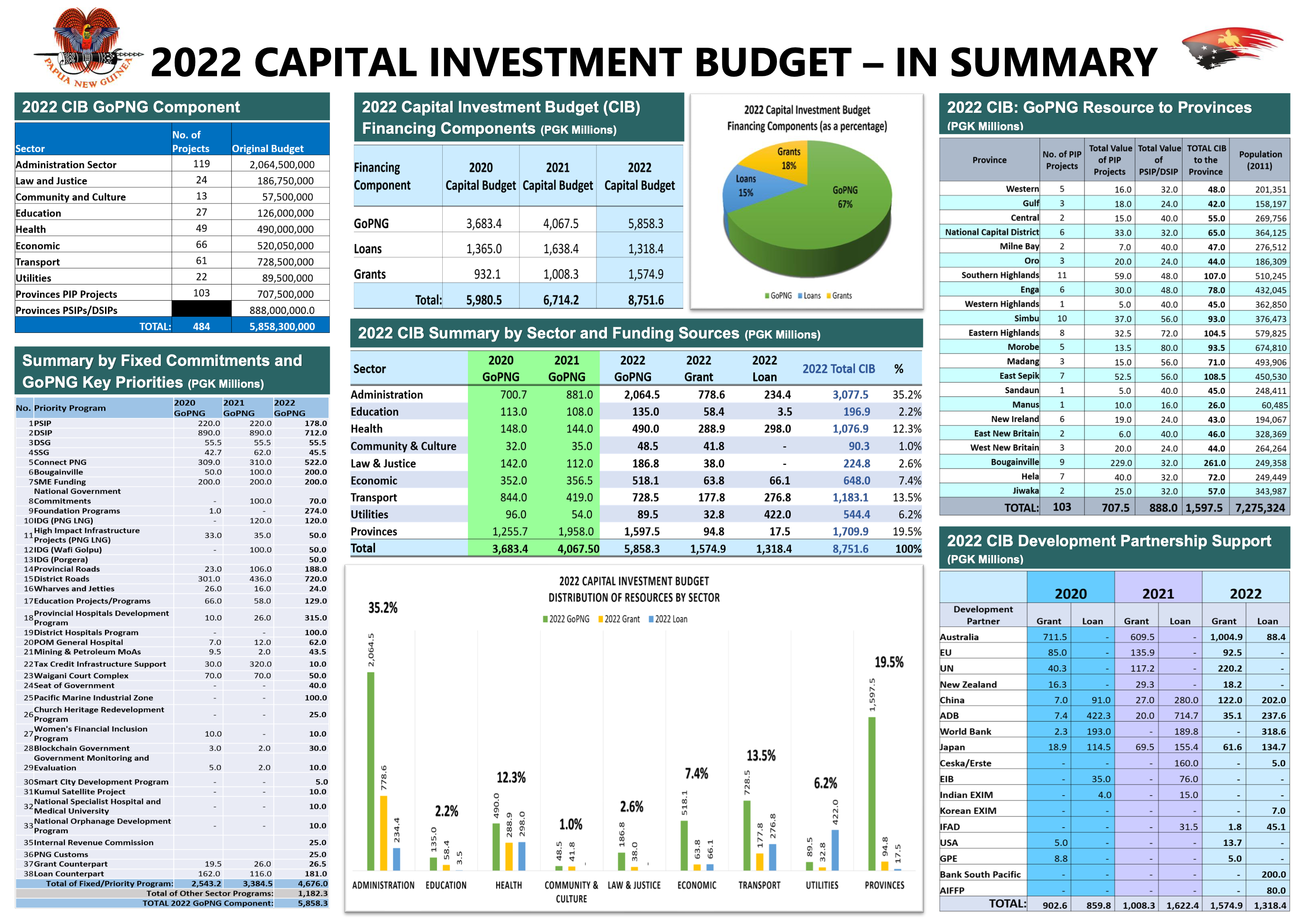Open Government Partnerships Program
Background
Open Government Partnership is a Multi-Stakeholder Global Initiative with over 78 countries participating. It is a fast-growing Global Organisation with countries all over the world who thinks that through the OGP Process their governments can promote greater transparency, accountability, integrity, and being more responsive to citizens' needs.
On the 7th May, 2014, at the Asia-Pacific Regional Conference in Bali, Republic of Indonesia, Hon. Rimbink Pato,OBE, MP and former Minister for Foreign Affairs and Trade gave Papua New Guinea's intention to become an OGP member country. The intention was formally endorsed on the 3rd of September, 2015 through a National Executive Council (NEC) Decision No. 285/2015 which also established the OGP Secretariat under the Department of Foreign Affairs (DFA). Later in the same year, the PNG's intention to be an OGP member country was accepted and officially announced by the OGP Co-chairs on the 28th October, 2015 at the OGP Global Summit in Mexico.
Since the inception of OGP Initiative in 2014, Department of Foreign Affairs (DFA) had provided the Secretariat Service to the OGP Steering Committee until the OGP National High-Level Conference in which stakeholders decided that the Department of National Planning and Monitoring (DNPM) should provide the PNG OGP Secretariat Service and coordinate the implementation of the National Action Plan (NAP) over the next 2 years.
OGP Objective
OGP promotes the principles of democracy and sets the platform for transparent and accountable practices in government process. This includes having access to vital information, involving citizens to be part of the decision-making process, policy formulation, development planning, budgeting, service delivery and monitoring & reporting. Thus, aligning with the Government's priority of attaining value for money while delivering goods and services through a scrutinised fiscal management system.
The principles of OGP compliments the spirit of the National Constitution laid down by our forefathers which are further incorporated through several cascading strategies, national policies and development plans such as the Vision 2050, PNG Development Strategic Plan (PNGDSP) 2010-2030, Medium Term Development Plan III (MTDP) 2018-2022, National Anti-Corruption Strategy (NACS) 2010-2030 and many more.
Administration Structure
The structure of the PNG OGP takes que from the Global OGP Administration. The National Planning Minister is then the Minister responsible for OGP matters and the Department of National Planning and Monitoring is the country's Point of Contact. The OGP Headquarter is in Washington DC, USA and the Asia-Pacific Regional Head Office is in Singapore.
PNG OGP Secretariat
The PNG OGP Secretariat is provided by DNPM under the Policy and Budgets Division of the Policy and Planning Wing. The Secretariat performs the responsibilities of organising National Committee Meetings, taking meeting minutes and most importantly coordinate the implementations of the NAP and report to the Secretary of the Department, National Planning and Monitoring Minister who is also a OGP Minister, Government of Papua New Guinea, OGP Regional Headquarter in Singapore and Head Quarter in Washington DC, USA. The are number of Committees through which OGP Commitments are
National Steering Committee
The National Steering Committee (NSC) Meeting is the peak decision-making body for the PNG OGP and the Meetings are held on a quarterly basis. NSC is co-chaired by Government (DNPM) and Civil Society Organisation (PNG Transparency International). PNG OGP Secretariat provides secretariat service to the NSC Meetings. All Cluster Leaders report to NSC Members in its quarterly Meetings using the standard reporting template.
Cluster Committee
There are four (4) Cluster Committees and each of this Cluster Committee has its own Secretariat and the meetings are conducted prior to the NSC Meetings. They are required to conduct more than four meetings in a year. Committees are also co-chaired by the responsible State Agencies and CSOs. The Decisions of the NSC are further discussed and translated into work plans and implemented. Lead responsible state agency provides the Secretariat service for the Sub-committee. The co-chairs coordinate the implementations of the commitments under its Cluster Committee and reports to the NSC.
Sub Technical Working Committee
Each Cluster Committee has the power to establish a Sub-Technical Working Committee if they see that it is necessary to undertake activities through the Committee. For instance; for the Freedom of Information (FOI) Cluster Committee has formed a Legal Drafting Committee to draft the Access to Information Act.


